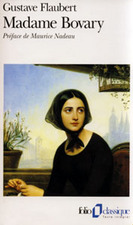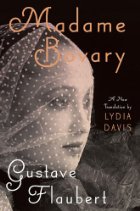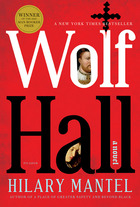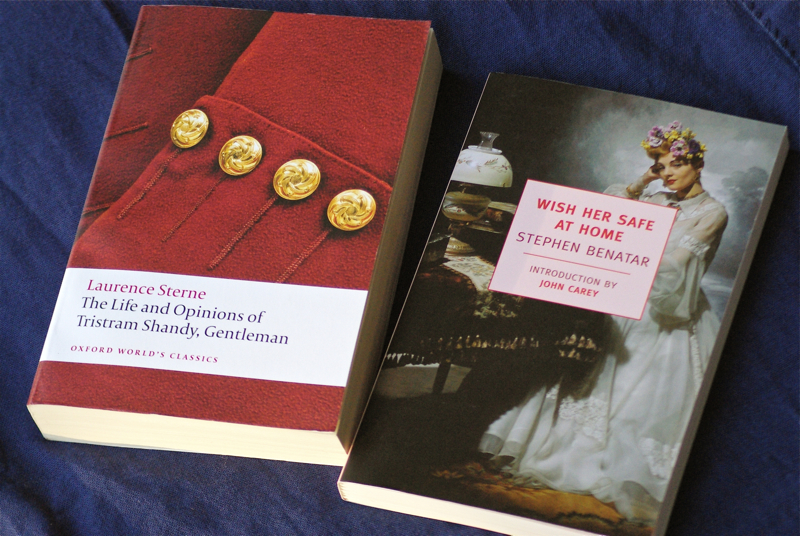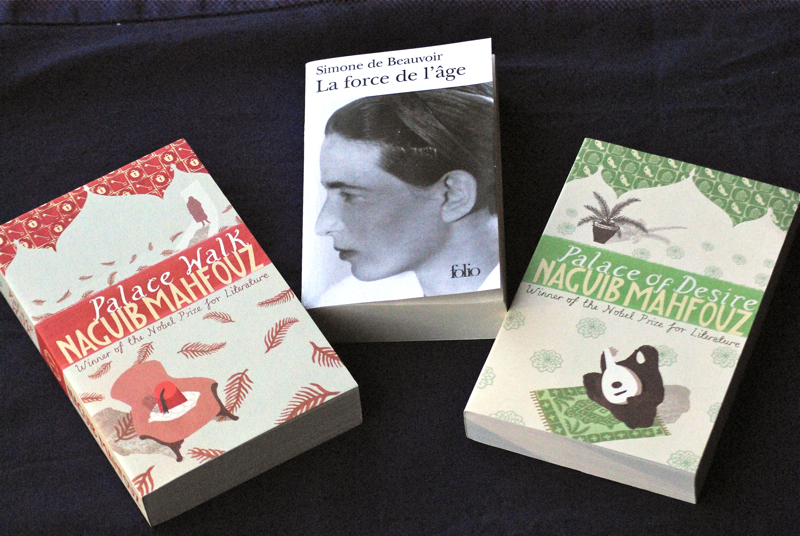
After the intensity and vasty deeps of Madame Bovary, I quite enjoyed relaxing into a more comfortable, quick-moving novel, one that takes place in the familiar environment of an American boarding school at mid-century. What is it that's so comforting about boarding-school narratives, I wonder? I myself went to public day school, so it can hardly be a personal familiarity with the subject matter. Nor, based on my experiences sharing a dorm room in college, do I believe I would have done well at or enjoyed the boarding school life. Perhaps it's the predictability of the school year's progress: the crisp scholasticism of fall, the holidays, the depths of winter giving way to the restlessness of spring, then breaking up as summer arrives. School stories often take place over the course of a single year, or multiple whole years, and the combination of steady progress and a clear end-point is undeniably reassuring, in a way that high school never felt when I was actually attending it. For readers above a certain age, I suppose, school stories are reassuring simply because we know we'll never have to revisit them ourselves.
Tobias Wolff's Old School follows this familiar pattern: beginning in the fall of 1960, the narrator's senior year at a self-consciously literary all-male prep school, it tracks his progress through three rounds of the school's tri-annual writing contest. Pitting boy against boy, this contest awards the author of the best story or poem a one-on-one audience with a prestigious visiting author. Wolff's narrator, who like many of his schoolfellows aspires to professional authorship, recalls that at seventeen winning one of these contests seemed absolutely crucial to him:
I'm not exaggerating the importance to us of those trophy meetings. We cared. And I cared as much as anyone, because I not only read writers, I read about writers. I knew that Maupassant, whose stories I loved, had been taken up when young by Flaubert and Turgenev; Faulkner by Sherwood Anderson; Hemingway by Pound and Gertrude Stein. All these writers were welcomed by other writers. It seemed to follow that you needed such a welcome, yet before this could happen you somehow, anyhow, had to meet the writer who was to welcome you. My idea of how this worked wasn't low or even practical. My aspirations were mystical. I wanted to receive the laying on of hands that had written living stories and poems, hand that had touched the hands of other writers. I wanted to be anointed.
For the first two-thirds of the novel, we are in the midst of these competitions: first for the attentions of the old guard Robert Frost, then for the facile self-assurance of Ayn Rand, and lastly for the approval of the boys' collective idol, Ernest Hemingway. After the disastrous results of the final competition, we get versions of the story from a couple of other, unexpected angles; these final chapters were probably my favorites for the depth and variety they add to the narrative, and the way they gently take the mickey out of the narrator's hushed reverence for all things scholastic and literary.
One of the things that tickled me about Old School was the way in which the three visiting authors are not particularly good readers. The narrator, and presumably his class-mates, see them as practically omniscient, almost gods—or at least, as the word "anointed" implies, priests. The perceptive reader expects that this illusion will be shattered, that the writers will be exposed as flawed humans just like everyone—what we might not expect is that these writers are not even particularly insightful critics. Being able to make a living with their pens and typewriters doesn't necessarily give them a leg up on understanding others' writing; their mis-readings, in fact, are one of the most consistent features of the book. Frost awards his prize to the author of a slavish, imitative ode because he misinterprets it as a satire; Rand misreads an outlandish science fiction story as a metaphor for the dangers of collectivism, when it's actually an impassioned plea for vegetarianism. And, as the Susan Friedman character points out late in the novel, Hemingway's misreading is perhaps the most ironic of all.
In fact, the irony surrounding perceptions of Hemingway in Wolff's novel is thick and multi-faceted, and we keep learning more about it as the book progresses. The boys all idolize "Papa" for his great work of the 1920s and 30s, and lionize him as the Greatest Living American Author without any notion of the changes that thirty years can make in a man. They expect Hemingway, in 1960, to be more or less a character from one of his own novels: Santiago, or even Nick Adams: strong, stoic, obeying, to the best of his ability, the dictates of his own internal compass. Hemingway's actual condition at the time is never explicitly illuminated in the novel, but I think it adds poignancy to contrast the boys' hero worship with this portrait (from Hemingway's Wikipedia page):
Although Hemingway's mental deterioration was noticeable in the summer of 1960 [just before Wolff's novel begins], he again traveled to Spain to obtain photographs for the manuscript. Without Mary, he was lonely and took to his bed for days, retreating into silence. [...] When he left Spain, he went straight to Idaho, but was worried about money and his safety. As his paranoia increased, he believed the FBI was actively monitoring his movements. Hemingway suffered from physical problems as well: his health declined and his eyesight was failing. In November he was admitted to the Mayo Clinic in Minnesota, where he may have believed he was to be treated for hypertension. Meyers writes that "an aura of secrecy surrounds Hemingway's treatment at the Mayo", but confirms that in December 1960 he received electroconvulsive therapy as many as 15 times, then in January 1961 he was "released in ruins".
In the spring of 1961, Wolff's narrator has an argument with his English professor, Mr. Ramsey, about Ramsey's censorship of the interview with Hemingway that had appeared in the school paper. Given the ruined mind and body of the soon-to-be-suicidal writer, it's easy and somewhat heartbreaking to imagine the back-story to the exchange:
Why did you censor what he said to you? That wasn't right. You don't censor Ernest Hemingway.
[...]
Mind you, he said, the stuff I left out wouldn't have made it past the vigilance committee, but that's not why I left it out. Let me say that I do not consider Hemingway the greatest writer of this century, but he is a very great writer indeed, and some of what he said to me was unworthy. At his best, he would never have said it—I'm sure of that. It seemed unfair, even mean-spirited, to make such remarks public. In fact, we probably shouldn't have run the interview at all.
You had no right to touch a word of his. It was wrong.
The boy's stubborn insistence that any word from the mouth of Hemingway is sacred, that it was wrong of his teacher to cut anything, even to save Hemingway himself from public humiliation, illustrates his own willful mis-reading of the situation; like Ayn Rand misinterpreting Big Jeff Purcell's vegetarian space odyssey, he is reading into the situation a narrative that makes him, and his assumptions and priorities, the center of events. It's a typically teenage mistake to make, but, as Wolff reminds us, one to which adults can fall victim as well.
A note in closing: although I enjoyed the whole book and thought the final chapters in particular took it to a higher level, I took a different kind of enjoyment—more of a wicked glee—in the depiction of the narrator's brief infatuation and rapid disillusionment with Ayn Rand, including the hilarious "audience" scene in which she casts him a withering stare for the crime of having a cold, and declares that Atlas Shrugged is the "single greatest work by an American author," with The Fountainhead as runner-up. The description of Big Jeff's winning story, and the description of our narrator's superficial identification with Howard Roarke from The Fountainhead, were also extremely funny. I spent the Rand section giggling, and the rest of the novel lost in enjoyable thought.
Old School was the October pick for the Non-Structured/Wolves in Winter reading group. Please consider joining us in November for Ricardas Gavelis's Vilnius Poker!
